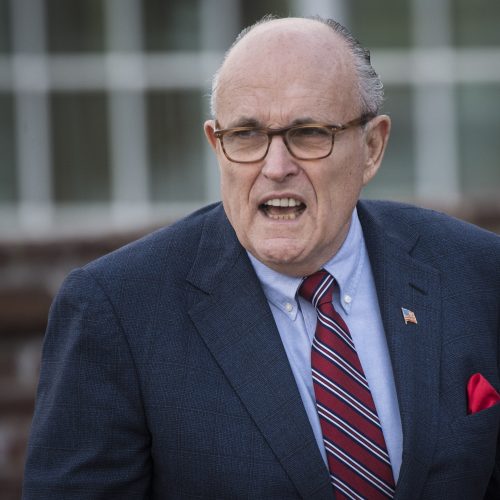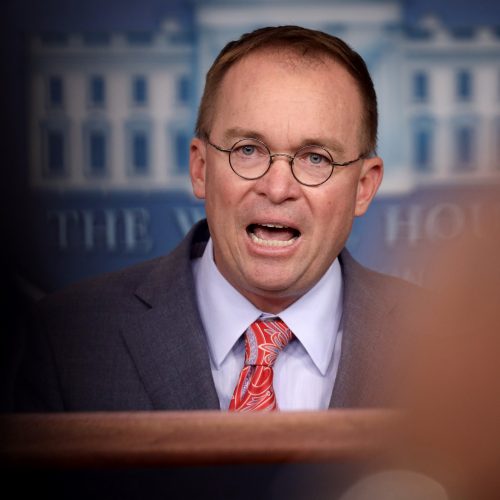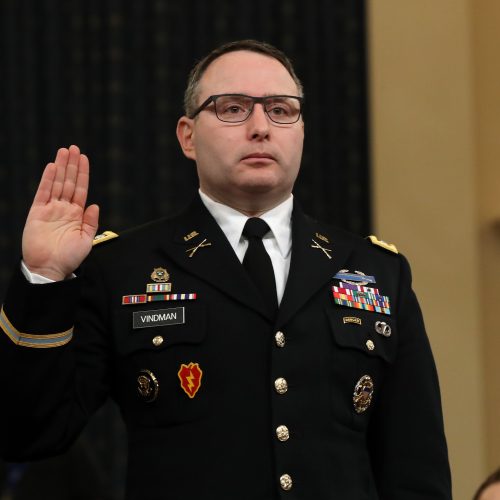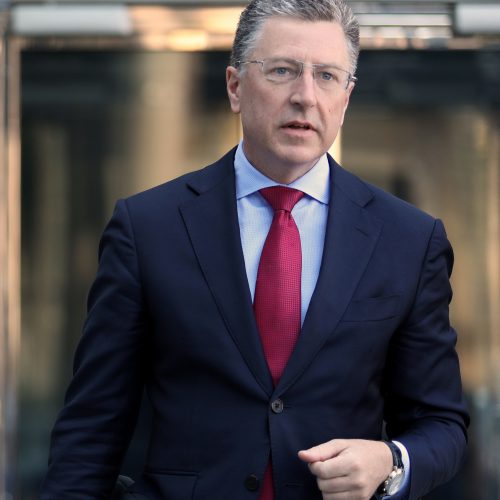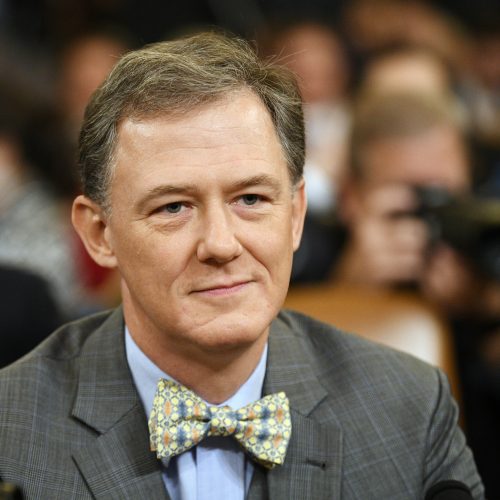
If anyone else engaged in a similar bribery scheme, they’d be charged with a crime.
Americans are entitled to a free and fair election in 2020. That’s why Congress—through the impeachment process—is holding Trump accountable for abusing his power. Because in America, nobody is above the law—not even the president.
The facts on impeachment are clear.
Abuse of Power
President Trump abused his power by personally soliciting foreign government interference into our elections for his own political gain. Trump pressured the Ukrainian president to investigate his political opponent—and withheld $250 million in military aid and a White House meeting as leverage.
Source: New York Times, 9/23/19
OBSTRUCTING THE INVESTIGATION
Trump has obstructed and impeded Congress’ investigation at every turn—ordering his political appointees and inner circle to refuse to comply with lawful Congressional subpoenas and document requests. These actions were aimed at covering up Trump’s misconduct.
Source: New York Times, 11/12/19
IMPEACHMENT IS THE ONLY OPTION
Trump’s behavior threatens every American’s right to free and fair elections. Left unchecked, this behavior threatens the very foundation of our democracy. The only way to hold Trump accountable is for the House of Representatives to impeach him and the Senate to remove him from office.
Source: U.S. Constitution
Key Players
Possible Defendant:
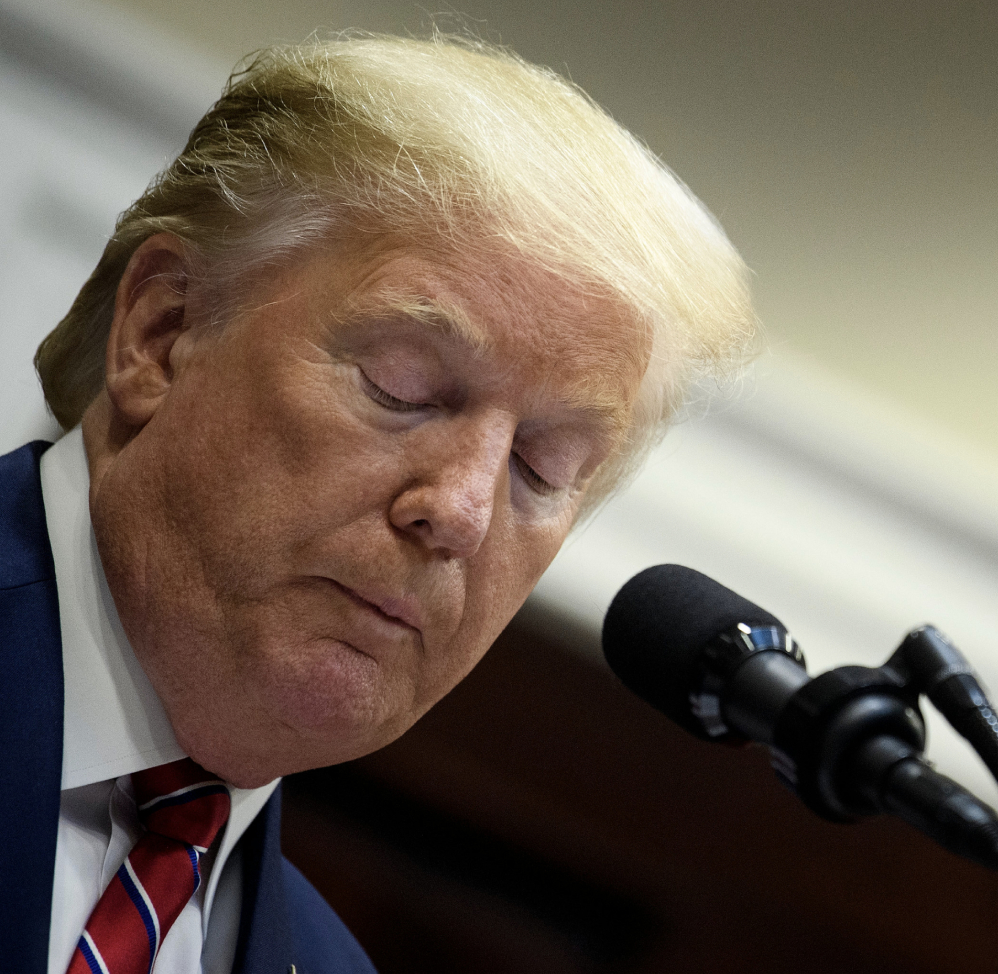
I would like you to do us a favor though.”
President Donald Trump
Trump is the 45th president of the United States. He is currently under investigation by the U.S. House of Representatives for withholding military aid from Ukraine until they agreed to help in his reelection campaign.
Trump’s Inner Circle
Rudy Giuliani
Trump’s Personal LawyerRudy Giuliani
Trump’s Personal Lawyer
CNN’s Chris Cuomo: “So you did ask Ukraine to look into Joe Biden?” Giuliani: “Of course I did!”
Giuliani is President Trump’s personal lawyer and the former mayor of New York City who ran a “shadow foreign policy” pressuring Ukraine to investigate Trump’s political rivals at Trump’s direction.
Gordon Sondland
Trump’s E.U. AmbassadorGordon Sondland
Trump’s E.U. Ambassador
I said that resumption of U.S. aid would likely not occur until Ukraine provided the public anti-corruption statement that we had been discussing for many weeks."
Sondland is the Trump-appointed ambassador to the European Union, who executed President Trump’s orders, demanding the Ukrainians to bribe the president with a public investigation into Trump’s political rivals before they’d get military aid.
Mick Mulvaney
Trump’s acting chief of staffMick Mulvaney
Trump’s acting chief of staff
I have news for everybody: Get over it. There’s going to be political influence in foreign policy.”
Mulvaney is the director of the Office of Management and Budget and acting White House chief of staff who was responsible for implementing Trump’s order to withhold military assistance from Ukraine. At a White House press conference, Mulvaney publicly confirmed that there was a bribery scheme.
Key Witnesses:
Ambassador William Taylor
Acting U.S. Ambassador to UkraineAmbassador William Taylor
Acting U.S. Ambassador to Ukraine
To withhold that assistance for no good reason other than help with a political campaign made no sense...It was illogical. It could not be explained. It was crazy.”
Ambassador Taylor was an officer in the U.S. Army during the Vietnam War and has served as a diplomat under Republican and Democratic presidents. In his testimony to Congress, he confirmed that military aid and meetings with President Trump were being withheld until the Ukrainian government publicly announced the investigation into Trump's political rivals that Trump was demanding.
Lt. Colonel Alexander Vindman
Director for European Affairs for the United States National Security CouncilLt. Colonel Alexander Vindman
Director for European Affairs for the United States National Security Council
I was concerned by the call. I did not think that it was proper to demand that a foreign government investigate a U.S. citizen.”
Vindman is a U.S. Army lieutenant colonel who works on the National Security Council (NSC). As part of his NSC duties, he joined the July 25, 2019, phone call between President Trump and the president of Ukraine. He confirmed to Congress his understanding that Trump would only release the military aid to Ukraine in exchange for an investigation into Trump’s political rivals, and said that Trump’s actions were “harmful to U.S. national security.”
Kurt Volker
Former U.S. Special Representative for UkraineKurt Volker
Former U.S. Special Representative for Ukraine
The allegations against vice-president Joe Biden are self-serving and not credible."
Volker is Trump’s former special envoy to Ukraine and one of the three people Trump charged with executing his effort to pressure the Ukrainian president into publicly announcing investigations into Trump’s political opponents. He testified to Congress that he spoke with Trump about Ukraine and that Trump repeatedly told him to “talk to Rudy” about Ukraine.
Fiona Hill
Former Senior Director of European and Russian AffairsFiona Hill
Former Senior Director of European and Russian Affairs
I sat in an awful lot of calls, and I have not seen anything like this. And I was there for two and a half years. So I was just shocked.”
President Trump appointed Dr. Hill to the National Security Council staff in April 2017. She testified to Congress that Trump would not meet with the president of Ukraine until the Ukrainian government started investigations into Trump’s political rivals.
George Kent
Deputy Assistant Secretary of State for European and Eurasian AffairsGeorge Kent
Deputy Assistant Secretary of State for European and Eurasian Affairs
I do not believe the United States should ask other countries to engage in selective...prosecutions against opponents of those in power, because such selective actions undermine the rule of law.”
President Trump appointed Kent, who has served in diplomatic roles under both Republican and Democratic presidents, to be deputy assistant secretary of state in September 2018. Kent also testified to Congress that Trump would not meet with the president of Ukraine until the Ukrainian government started investigations into Trump’s political rivals.
Maria Yovanovitch
Former Ambassador to UkraineMaria Yovanovitch
Former Ambassador to Ukraine
It sounded like a threat.”
Ambassador Yovanovitch has served in diplomatic roles under both Republican and Democratic administrations. She was the ambassador to Ukraine when President Trump and Rudy Guiliani’s pressure campaign against Ukraine started. However, she was ousted from her position as ambassador when it became clear that she was unlikely to support and advance Trump’s corrupt behavior.
So how exactly does impeachment work?
The Constitution gives Congress the power to impeach and remove a sitting president for “treason, bribery, high crimes, and misdemeanors.” The House of Representatives is in the process of investigating President Trump and will soon vote on whether to impeach him. If he is impeached, the Senate will hold a trial and eventually vote to determine whether President Trump should be removed from office.

